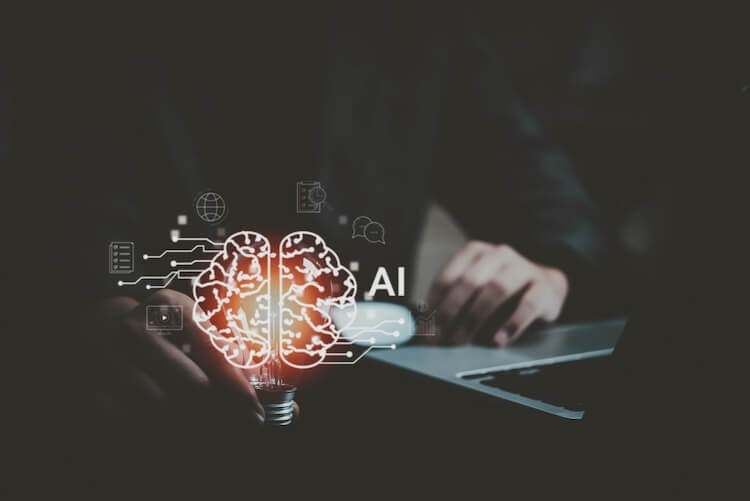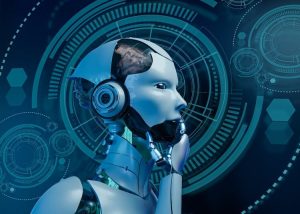
Boosting Performance: Artificial Intelligence in Training
- Author: Urban Rotar
- Published:

How does AI personalize learning in training programs?
AI personalizes learning by analyzing individual learner data to tailor content, pacing, and methods. It adjusts based on performance and preferences, providing a customized and engaging learning experience.
What technologies are used in AI for training?
AI in training uses machine learning and natural language processing. These technologies analyze data, adapt content, and provide real-time feedback to enhance the learning process.
Can AI reduce training costs for organizations?
Yes, AI can reduce training costs by automating routine tasks, offering personalized learning paths, and improving training effectiveness, leading to better ROI on training investments.
Key Takeaways - Artificial Intelligence in Training:
- AI in training personalizes learning, boosting engagement and effectiveness.
- AI identifies knowledge gaps and suggests relevant content for learners.
- AI-driven adaptive learning platforms cater to individual learning styles.
- Machine learning and natural language processing enhance training programs.
- Real-world examples show AI’s effectiveness in reducing training costs and improving ROI.
The Importance of AI in Training and Development
Artificial intelligence in learning and development is transforming the way we learn and teach, making it essential to explore its benefits for training and development. AI-powered software can speed up workflows and professional development, making it a valuable tool for employees and organizations. While human intelligence will always be the top priority, AI can augment and support human capabilities. Real companies are using AI to achieve remarkable results, and we’ll explore examples in this post.
Identifying Knowledge Gaps
AI in Learning and Development can analyze huge data sets and derive conclusions using technologies like machine learning and predictive analysis. AI can create learner profiles combining disparate data sources, identifying skills missing in employees and providing personalized learning recommendations. Furthermore, AI can measure learner performance, skills, and knowledge gaps in an organization, making learning more effective and efficient. By suggesting the most relevant content for learners, AI saves time and enhances their learning experience.
AI for learning and development also plays a transformative role by personalizing educational experiences through data analysis, adapting training content to employee needs, and enhancing engagement via interactive technologies.

Personalize Learning According to the Learner
AI can personalize learning according to the pace, age, gender, and demographics of the learner. It can release materials to the employee gradually as they finish a chapter or a module. Additionally, AI can align learning with the employee’s learning style, improving retention, recall, and learning outcomes. Personalized learning paves the way for greater learner engagement and improved learning experiences.

AI as a 24/7 Digital Tutor
AI eliminates the need for a human trainer to some extent, providing instant answers to common learner queries. Enterprises can use chatbots based on AI to help learners get answers to the most common questions. These AI tools provide accurate answers and help learners in real-time, improving their learning experience and outcomes. Additionally, AI can offer learners instant feedback, helping them improve their performance. Artificial intelligence in learning and development plays a crucial role in personalizing learning experiences, automating assessments, and enhancing engagement.
AI-Powered Learning Process
AI technologies, such as machine learning and natural language processing, can enhance learner engagement and improve the effectiveness of instruction. By automating routine tasks, AI frees up instructors to focus on more complex and creative tasks. AI provides personalized learning paths and adaptive learning experiences, improving learning outcomes and increasing learner satisfaction.

Adaptive Learning Platforms
AI-driven adaptive learning platforms continuously assess learners’ capabilities and adjust content and difficulty level based on progress. These platforms cater to different learning styles and ensure continuous improvement. AI ensures that learners are consistently challenged at an optimal level, boosting learning outcomes and engagement.
Intelligent Content Curation
AI excels at content curation, identifying relevant and high-quality resources. Using natural language processing and machine learning, AI aligns content with specific learning objectives, saving professionals time and enhancing learning outcomes.
Gamification and Immersive Experiences
AI-driven gamification injects fun and competition into the learning process. AI algorithms analyze learners’ performance in gamified modules to adjust difficulty level. Moreover, AI facilitates immersive learning experiences, such as virtual reality (VR) or augmented reality (AR) simulations, enhancing learning outcomes and engagement.
Machine Learning for Enhanced Training
Machine learning algorithms can analyze large datasets and identify patterns, improving training effectiveness and efficiency. By providing personalized learning recommendations and adaptive learning experiences, machine learning enhances learning outcomes and increases learner satisfaction.
Predictive Analytics for Skill Development
AI algorithms can analyze employee performance data to identify trends and predict skill shortages. Predictive analytics enables professionals to design targeted training programs, addressing skill gaps and improving employee performance.

Developing Crucial Insights
AI for learning and development can mine LMS data, employee performance, collect feedback, and generate valuable insights into learning and development. Enterprises can use this data to refine their content, courses, and AI in training and development strategy.
Improving Training Effectiveness
AI can help improve training effectiveness by offering personalized learning experiences, adaptive learning platforms, and intelligent content curation. Additionally, AI can reduce training costs and improve ROI on training investments, making training more efficient and effective.
Natural Language Processing in Training
Natural Language Processing (NLP) enables computers to understand human language and generate new written content. NLP AI models analyze language patterns, identify key themes and ideas, and generate content that meets specific requirements.
Enhancing Communication and Feedback
NLP enhances communication and feedback, improving learning outcomes and increasing learner satisfaction. By providing instant feedback and support, NLP boosts learner engagement and motivation.
Automating Routine Tasks
NLP can automate routine tasks, allowing instructors to focus on more complex and creative tasks. This automation reduces administrative burdens, improving training efficiency and effectiveness.
Creating Personalized Learning Paths
NLP creates personalized learning paths, enhancing learning outcomes and satisfaction. By offering adaptive learning experiences, NLP increases engagement and improves learning results.
AI-Driven Training Solutions
AI-driven training solutions offer personalized learning experiences, adaptive learning platforms, and intelligent content curation. These solutions enhance training effectiveness, reduce costs, and improve ROI on training investments.

Virtual Coaches for Support
AI-powered virtual coaches provide support and guidance, improving learning outcomes and increasing satisfaction. Virtual coaches offer instant feedback and support, boosting engagement and motivation.

Chatbots for Instant Feedback
AI-powered chatbots provide instant feedback and support, enhancing learning outcomes and satisfaction. Chatbots offer personalized learning experiences, improving engagement and results.
Continuous Learning and Microlearning
AI-driven continuous learning and microlearning offer personalized experiences, improving outcomes and satisfaction. These approaches enhance training effectiveness, reduce costs, and improve ROI on training investments.
Benefits of AI in Training
AI can improve training effectiveness, reduce costs, and boost ROI on training investments. By offering personalized learning experiences, adaptive learning platforms, and intelligent content curation, AI enhances training efficiency and effectiveness.

Increased Efficiency and Productivity
AI improves training efficiency and productivity by reducing administrative tasks and enhancing training effectiveness. By automating routine tasks, AI allows trainers to focus on more complex and valuable activities.
Improved Learner Engagement
AI boosts learner engagement and motivation by providing personalized learning experiences and adaptive platforms. These tailored experiences keep learners interested and invested in their training.
Better ROI on Training Investments
AI improves ROI on training investments by reducing costs and enhancing training effectiveness. Organizations can see better returns by integrating AI into their training programs.
Implementing AI in Training Programs
Implementing AI in training programs requires careful planning and execution. AI can be integrated with existing systems, enhancing training effectiveness and efficiency.

Integration with Existing Systems
AI can be integrated with existing learning management systems (LMS), improving training effectiveness and efficiency. Additionally, AI can be integrated with HR systems, streamlining training administration and management.
Addressing Technical and Infrastructure Challenges
Implementing AI in training programs involves addressing technical and infrastructure challenges. AI requires significant computational power and storage, which can enhance training effectiveness and efficiency when managed properly.
Change Management and Adoption Strategies
Implementing AI in training programs requires change management and adoption strategies. Effective planning and execution can improve training effectiveness and efficiency, ensuring successful AI integration.
Overcoming Challenges in AI Adoption
Overcoming challenges in AI adoption involves careful planning and execution. Addressing technical and infrastructure issues can enhance training effectiveness and efficiency.
Addressing Concerns and Fears
Addressing concerns and fears about AI adoption is essential for successful integration. Proper planning and execution can help alleviate worries and improve training effectiveness and efficiency.

Effective Implementation Strategies
Effective implementation strategies are crucial for AI adoption. With careful planning and execution, organizations can improve training effectiveness and efficiency.
Measuring Success and ROI
Measuring success and ROI is vital for AI adoption. By evaluating the impact of AI on training effectiveness and efficiency, organizations can ensure successful integration and continuous improvement.
Future of AI in Training and Development
The future of AI in training and development looks promising, with continued improvements in effectiveness and efficiency. AI will play a crucial role in shaping the future of training programs.
Emerging Trends and Innovations
Emerging trends and innovations in AI are enhancing training effectiveness and efficiency. These advancements will continue to drive improvements in training programs.

The Role of AI in Shaping the Future of Work
AI’s role in shaping the future of work is significant. By enhancing training programs, AI helps organizations adapt to changing demands and improve training effectiveness and efficiency.



